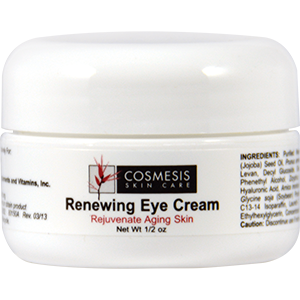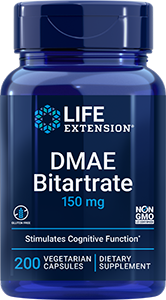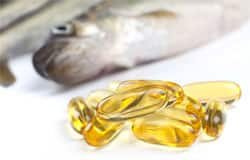Increased EPA/DHA, ALA associated with lower risk of cardiovascular mortality
Friday, January 10, 2014. The European Journal of Preventive Cardiology published an article online on December 16, 2013 which reports the finding of a lower risk of death from cardiovascular disease among men and women with a higher intake of the omega-3 fatty acids eicosapentaenoic acid (EPA) and docosahexaenoic acid (DHA), which are derived from marine sources, as well as alpha-linolenic acid (ALA), which occurs in plant foods.
The current study evaluated data obtained from the Singapore Chinese Health Study, which recruited 63,257 Chinese men and women between the ages of 45 and 74 years from 1993 to 1998. Responses to dietary questionnaires completed upon enrollment provided information on the intake of omega-3 fatty acids. Over the follow-up period, 4,780 deaths from cardiovascular disease occurred, which included 2,697 attributable to coronary heart disease and 1,298 from stroke.
When subjects in the top 25% of omega-3 fatty acid intake were compared with the lowest 25%, a 12% lower risk of dying from cardiovascular disease was observed. A similar reduction in risk occurred for the second and third highest categories of intake. When EPA combined with DHA intake was separately examined, a 14% lower risk for those in the top 25% compared to the lowest was found, and for ALA, the risk of dying from cardiovascular disease was 19% lower for those among the highest fourth. The reduction in risk associated with high omega-3 intake was similar for coronary heart disease as well as stroke.
"Although studies suggest that omega-3 fatty acids intake may reduce cardiovascular disease (CVD) mortality risk, few studies have differentiated dietary eicosapentaenoic/docosahexaenoic acid (EPA/DHA) from alpha-linolenic acid (ALA)," Angela S. Koh of National Heart Centre Singapore and her colleagues write.
"Higher intakes of marine (EPA/DHA) and plant (ALA) omega-3 fatty acids are both associated with reduced risk of cardiovascular mortality in a Chinese population," they conclude.
|
 |
What's Hot
The July-September 2013 issue of the Annals of Medical & Health Sciences Research reported the outcome of a study conducted by researchers in India which found a benefit for alpha-lipoic acid, omega-3 fatty acids and vitamin E in men and women with diabetes.
In a randomized, double-blinded trial, Dr Pradeep S. Nahar and his associates divided 104 diabetics between the ages of 21 and 65 years of age to receive a daily placebo or one of the following regimens for ninety days: 300 milligrams alpha-lipoic acid, 180 milligrams eicosapentaenoic acid (EPA) and 120 milligrams docosahexaenoic acid (DHA), or 400 milligrams vitamin E. Fasting glucose and hemoglobin A1c (HbA1c, a marker of long term glucose control) were measured at the beginning of the study and at its conclusion.
In comparison with the placebo group, participants who receive alpha-lipoic acid, EPA/DHA or vitamin E experienced a reduction in HbA1c. Subjects in the three treatment groups also had a nonsignificant decline in fasting glucose.
"The results of this study demonstrate that antioxidants alpha lipoic acid, omega 3 fatty acid and vitamin E showed encouraging decrease in blood glucose and HbA1c with no adverse effect and these antioxidants may be used in patients with type 2 diabetes mellitus," the authors write. "However further study with larger sample size and longer duration of treatment is required to definitely establish the role of anti-oxidants in patients with type 2 diabetes mellitus. Depending upon the cost benefit analysis we found vitamin E to be the most cost effective even though the maximum improvement in blood glucose and HbA1c was with omega-3 fatty acid."
"Most importantly, since the antioxidants differed in their effects on parameters of insulin sensitivity, combining these drugs might prove as an attractive option in patients with type 2 diabetes mellitus," they conclude.
|
 |
Highlight
The Issue is Your Health! December 2013
|
Every month, Life Extension's Michael Smith, MD brings the pages of Life Extension Magazine® to life with his insight and thought-provoking opinion into the latest and most important issues that affect your health and wellness. Each show addresses information about nutrition and techniques to optimize your well-being; pioneering research and disease prevention; as well as the latest, innovative scientific and medical breakthroughs from around the world. Watch Dr. Smith get up-close and personal with health influencers you've seen and read about each month in the print edition of Life Extension Magazine. Be inspired by intelligent ideas on how to live a healthier and longer life. The Issue is Your Health is informative, fresh, smart, and stimulating. Be sure to watch it every month to help you create a health-conscious lifestyle.
In this issue, nutrition expert and clinical trainer, Crystal Moore, discusses how she helped her dad overcome prostate cancer. Crystal also explains how new tests can actually confirm a cancer diagnosis before rushing into an invasive biopsy procedure. |
|
 |
Latest Products |
 |
|
Renewing Eye Cream combines several complementary compounds that have been generating interest among dermatologists for their beautifying effects. Renewing Eye Cream contains:
- Jujube seed extract—a skin tonic rich in jujubosides, flavonoids, phenolics, and vitamin C.
- Olive leaf extract—packed with potent compounds, notably oleuropein, to help with inflammation.
- Levan—a polymer that attracts water molecules into the skin with powerful moisturizing effects.
|
| |
 |
|
DMAE (2-dimethylaminoethanol) is known to stabilize cell membranes. Cell membrane degradation has been proposed as one of the prime mechanisms of normal aging. DMAE is a precursor to choline and acetylcholine. Choline inside cells is converted to phosphatidylcholine and is used in the building and repair of cell membranes, especially in the brain. |
|
 |
Related Articles
|
|









